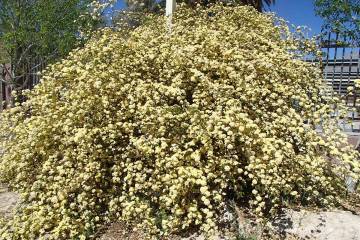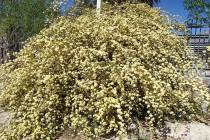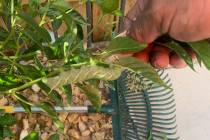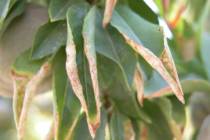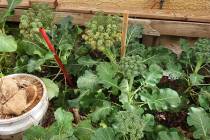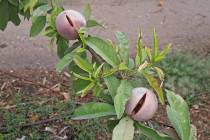Unusual teacher
The only thing in life we can count on is change. We just didn't expect things to change as radically as they have since the economic meltdown. Nothing is like it was. Now, even less is certain, as the future is truly unpredictable.
From studying cactuses for many years, I have learned much about change. The cactus is a model of how to weather the future in a way that ensures survival, however much the world has changed. This family of plants is as diverse as the human race, but endemic to the Americas. Cactuses were unknown in the Old World before Columbus, but share the same succulent tissues as many unrelated species from equally dry southern Africa.
This family has adapted to impossibly dry climates. As I wander through the cliffs and ledges outside my home in the desert around Palm Springs, Calif., this truth becomes abundantly clear. High up in the rocks, the compass barrel cactuses cling, hanging cantilevered over the abyss to receive sun, while protected from collectors and wildlife.
Cactuses have evolved succulent tissues to retain water for a long time. During our dry years, they grow smaller and shriveled as though at death's door. During a rainy year like this one, they are able to absorb water at an incredible speed, as it quickly moves through a porous root zone. I marvel at this ability to use the blessings of nature so efficiently, and suspect that if we were as eager to grasp the smallest benefits, we might become more self-sufficient, as well.
The great compass barrel grows fat, having sucked up as much water as it can to hold it through the parched summer. Some of the great, old fellows high on the cliffs grow so heavy with water their roots can no longer hold them in place. They come tumbling down the cliff to lie rootless at the bottom, their precious moisture draining out through their wounds. They are an example of how greed can destroy us, even when practiced for the right reasons. During hard times, we become vulnerable to this deadly sin, which can turn abundance into a fatal burden if not sufficiently tempered.
When there is water, the cactuses bloom. This year has been extraordinary, as the rainfall was sufficiently staggered to extend the season of moisture. Cactus flowers are large and vividly colored, standing out amid the drab desert vegetations like rubies in the rough. They tell us that great beauty and rarity can be found in the humblest of places, and if we sharpen our focus on details, we, too, will find them. Rare and fleeting, the flowers seem like a divine gift, both to those who admire them and to the myriad insects that pollinate them.
Within the maze of wickedly sharp thorns, fruit forms. Barrel-cactus fruit is delicious and sweet, but it is protected with armor that excludes all but certain birds. Only they may reach into the thorns with their pointed beaks to gobble flesh and the seeds it contains. Others struggle to reach the prize, but fail painfully. The birds digest and distribute the cactus seeds far and wide. Like all the desert wildlife, each of us has a role to play in this world. If we do not pursue many options, we may never find our destiny. Whether it's in the spartan desert or during challenging economic times, we must step outside our comfort zone to find our own fruit amid the spines.
The beauty of plants, in gardens and in the wild, is that they are teachers. Their greatest lessons are those of triumph over adversity. Many have survived ice ages and cataclysmic meteors, managing to adapt and thrive in a radically changed environment. They are heaven's gift to all of us, a living promise that no matter how trying the circumstances, we, too, are blessed with the ability to change.
Maureen Gilmer is a horticulturist. Her blog, the MoZone, offers ideas for cash-strapped families. Read the blog at www.MoPlants.com/blog. E-mail her at mogilmer@yahoo.com.








